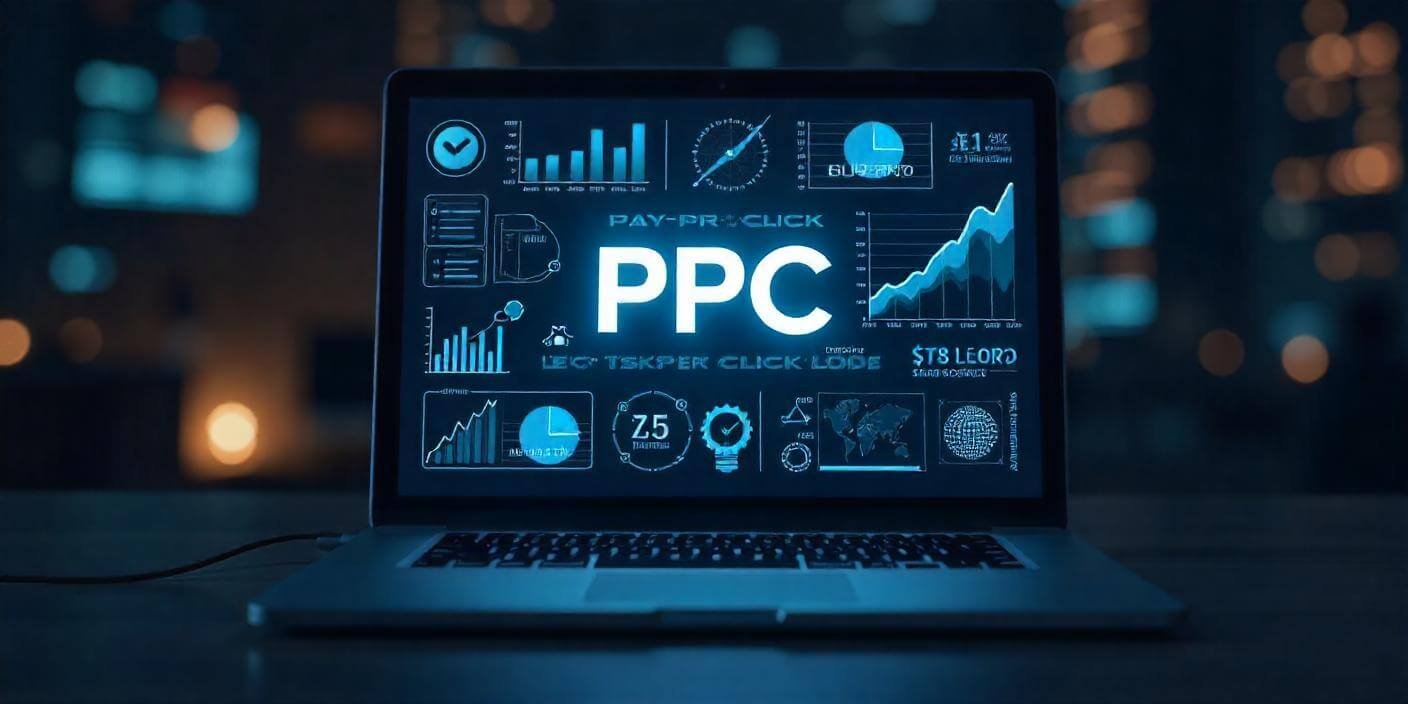
Growth Hacking Ideas – What Is Growth Hacking and How Can You Use It to Scale Quickly?
- Digital Marketing
Pay-Per-Click (PPC) advertising is one of the fastest ways to drive targeted traffic to your website. But success doesn’t happen by chance. It requires careful planning, smart execution, and ongoing optimisation. This quick guide walks you through how to set up a PPC campaign that delivers results within 30 days.
Step 1: Define Clear Goals 🎯
Why is this step important? Every successful PPC campaign starts with clarity. Without clear goals, you risk wasting budget, targeting the wrong audience, or measuring the wrong metrics. Setting well-defined goals ensures that every aspect of your campaign—from keyword selection to ad copy—aligns with your business objectives.
Before you touch Google Ads or Bing Ads, clarify what you want to achieve. Ask yourself:
Pro Tip: Align your PPC goals with your business objectives. Use SMART criteria—Specific, Measurable, Achievable, Relevant, and Time-bound—to define success.
Step 2: Know Your Audience 👥
Why does understanding your audience matter? Knowing your audience helps you create highly targeted ads that resonate with their needs, interests, and pain points. It reduces wasted spend by ensuring your ads are shown to people who are most likely to convert.
Understand who your ideal customer is and what they’re searching for. Segment your audience by demographics, behaviours, and interests.
Pro Tip: Use tools like Google Analytics and Facebook Audience Insights to gather data and identify patterns in your audience’s behaviour.
Step 3: Choose the Right Campaign Structure 🏗️
Why is structure critical? The way you structure your campaigns determines how effectively you can control costs, track performance, and scale success. Poor structure leads to disorganisation, wasted ad spend, and difficulty optimising.
Your campaign structure impacts performance, so get it right from the start. Consider these structures:
Pro Tip: Use SKAGs for core keywords and broader structures to test ideas quickly.
Step 4: Conduct Keyword Research 🔍
Why does keyword research matter? Keywords are the foundation of any PPC campaign. They determine when your ads show up and who sees them. Choosing the wrong keywords can result in irrelevant traffic and wasted budget.
Keywords make or break a campaign. Use tools like Google Keyword Planner, Ahrefs, SpyFu, or SEMrush to find high-intent search terms.
Keyword Match Types Explained:
Pro Tip: Use broad match sparingly—mainly to discover new keyword ideas (despite what Google will tell you to do!) Always monitor and add negative keywords to filter out irrelevant traffic.
Step 5: Write Killer Ad Copy ✍️
Why does ad copy matter? Your ad copy is the first impression potential customers have of your business. Well-crafted ads increase click-through rates, reduce cost-per-click, and improve Quality Scores.
Your ad copy should grab attention and drive clicks. Follow this formula:
Pro Tip: Test multiple variations of ad copy using A/B testing to identify top performers.
Step 6: Optimise Landing Pages 🌐
Why focus on landing pages? Even the best ads will fail if your landing page doesn’t convert visitors. Landing pages need to deliver exactly what the ad promises, otherwise users leave without taking action.
Driving traffic is pointless if visitors don’t convert. Make sure your landing pages:
Pro Tip: Use tools like Unbounce or Instapage to quickly create and test landing pages without coding.
Step 7: Budgeting and Bidding Strategies 💸
Why is budgeting important? Setting the right budget ensures you maximise results without overspending. It helps prioritise high-performing campaigns and eliminates wasted spend.
Allocate your budget based on goals and expected returns. Common strategies include:
Pro Tip: Start small and scale up based on performance. Avoid blowing the budget too quickly.
Step 8: Tracking and Analytics 📊
Why is tracking essential? Tracking lets you measure success, refine strategies, and improve ROI. Without proper tracking, it’s impossible to know what’s working.
Track every click and conversion to measure performance. Essential tools include:
Pro Tip: Use Google Tag Manager for easier tracking implementation.
Step 9: Monitor and Optimise Campaigns 🔧
Why does ongoing optimisation matter? PPC campaigns require constant attention. Trends change, competition evolves, and algorithms update—monitoring ensures continued success.
PPC success isn’t set-and-forget. Analyse performance data regularly and make adjustments:
Pro Tip: Schedule automated rules in Google Ads to adjust bids based on performance metrics.
Step 10: Retargeting and Scaling 🔄
Why is retargeting important? Not all visitors convert on their first visit. Retargeting keeps your brand in front of potential customers, giving them a reason to return and complete the action.
Retargeting Strategies:
Pro Tip: Layer retargeting with demographic targeting to increase precision.
Final Thoughts ✨
A PPC campaign that pays off in 30 days is entirely possible with the right strategy. Start with clear goals, carefully select keywords, and optimise ad copy and landing pages. Continuously monitor performance and refine as you go. Whether you’re targeting high-intent buyers or testing new ideas, a structured approach will drive results.
Need help setting up or optimising your PPC campaigns? Let’s talk! Kalagoo is here to help businesses make the most of their marketing budgets.





